Forget all the talk about equity. The HiLite puts the economic crisis in easier words.
By Steven Chen
<[email protected]>
As the U.S. economy continues to falter, several questions loom large for students. What is happening? How is this affecting us? And finally, what are the possible solutions?
What is happening?
Economics teacher Dan Bates said many of the economic problems stem from other problems. “As (the economy) feeds on itself and as there’s no money to borrow right now, people just can’t borrow money. And if businesses can’t borrow money, then they can’t build new factories, they can’t buy a new fleet of trucks, they can’t buy machines and tools, and so they won’t hire the people that they need to go with. And, in fact, they’ll start laying people off, and as they lay people off, less money’s being spent and then things shut down even more,” he said.
Junior Vince Reuter also said this is the case. Reuter said that the poor choices of a lot of financial institutions have led to the present status that has been brewing for a few years.
According to Bates, the economy has entered a “domino effect,” but these dominoes, instead of being in a straight line, are shaped in a circular fashion.
Bates said there are several sectors in which signs of the struggling market show, but the root of this problem lies in bad loans made by this country’s banks. “So many loans were made over that period of time to people who had no business getting a loan. We got down to where you didn’t even need a down payment to get a loan on a house,” he said. Many of those people bought homes with adjustable rate mortgages that were going to increase each year, but the mortgage brokers did not care about whether a loan could be paid off and instead passed them on to the banks. These banks then bundled the bad loans they received and sold them to other banks.
Vikas Vavilala, economics student and junior, said he agrees that banks gave loans that were falsified. “They offered mortgages at rates that they knew people could eventually not afford,” he said. “They didn’t take into account the ramifications of those actions.” Because this country’s financial system is run on credit, he said people usually buy things that they can’t afford.
“They think that okay, I’m buying on my credit card, so I can buy whatever I want as long as I can make my monthly payments,” Vavilala said. This nature of thought produced a massive bubble in the market.
But as these monthly payments began to pile up month by month, people eventually could not pay off their debts. The bubble then expanded to a thin wafer and popped. “The burst of the bubble in the housing market caused everything else today,” Vavilala said.
Short-Term Impact
The repercussions of the dwindling financial system have been bad. Bates said, “Well, as the economy shuts down, then people are putting off taking those road trips that they might have in their cars. For a long time now, airlines have been cutting flights out.”
Vavilala said there is now a credit freeze, where the banks are more circumspect with their loans and giving less of them. “You’re only willing to loan someone money, if you think that they will pay you back with interest,” he said.
Stocks have been riding a sinuous roller coaster for some time as well. The Dow Jones Industrial Average (DJIA), a stock market index whose average consists of 30 of the largest companies in the United States, reached its peak at 14,164 points on Oct. 9, 2007. Currently, though, the New York Stock Exchange (NYSE) reports the DJIA is at 8378.95 as of Oct. 24 after a few ups and downs. The most recent turmoil includes the biggest loss in a single day of 777.68 points and the biggest gain ever of 936.42 points on Oct. 12.
College fees are also piling up. Loans are issued on a more cautionary basis. Parents who have invested in the 529 college plan are losing money because of the tumbling stock market. According to Bates, parents should not have had money in stocks if they need it in five years, but this general rule has been violated because of the nature the previous, more positive market. “There have been a lot of people who have lost one or two years of college funding,” Bates said.
Long-Term Impact
“Well, over the years, the synopsis has been that 90 percent of the time any losses that you incur will be recovered over a five-year period and 100 percent of the time they’ll be recovered in a 10 year period,” Bates said. “But there are people who are talking now about a recession so deep that we might not see light at the end of the tunnel until 2015. So, who knows how bad it’s going to be. And the saddest part of all is those who retire but stay heavily invested in the stock market count on that to be their income.”
The side effects of recession are hitting home. According to ABC News, Indiana has an unemployment rate of 6.3 percent which is above the national average of 6.1 percent. According to U.S. Labor Department, companies laid off 159,000 workers nationally in September. Indiana has a foreclosure rate of 2.0 percent, which is 0.4 percent above the national average.
Bates said that teenage jobs or lower-end jobs are the first ones to be eliminated. They’re trying to figure a way to make ends meet. “If it’s a mom and a dad and a kid or two, it’s going to be the high school kid they let off too,” he said. Store owners are being hit particularly hard, especially in retail sales.
On the upside however, gas prices are decreasing from their $4 high. But that decrease, according to Bates, is actually a side effect of a struggling economy. “For a period of time, as supplies were decreasing, demand wasn’t doing anything; it was the same as it has always been. That would keep the price of oil a little higher. So, we’ll see, but oil’s below $70 a barrel, so that’s more than a 50 percent drop from where it has been,” Bates said.
Solutions
Next on the chopping block are the various solutions to this predicament. Reuter said he would propose more tax regulations on housing and lending industries and more financial requirements as to which families can purchase a loan for a home of a certain value.
Bates said the quickest solution would be for people to start spending money on durable goods, which are big-ticket items like cars. “But during economic crises, and especially during times of fear, people put off buying them. They just repair the ones they have, and so when you’ve shut down that segment of the economy, we’ve got a problem,” he said.
The U.S. government has already stepped in to help. According to the Wall Street Journal (WSJ), President George W. Bush recently signed a $700 billion investment in troubled assets and financial institutions after its second cycle through the House of Representatives. The bill was intended to buy out bad loans in order to revive the economy.
Vavilala said this bill will work, but most of this money has not been put in action. “The government can’t bundle it up much worse than they already have,” he said. The injection of money to the banks will then trickle down to we the people, which is the intention of the bailout.
Bates said, “It’s a very volatile market right now. People don’t want to miss out on the upswing, but people also don’t want to get trapped by another precipitous drop. It’s a scary place to be right now.”

















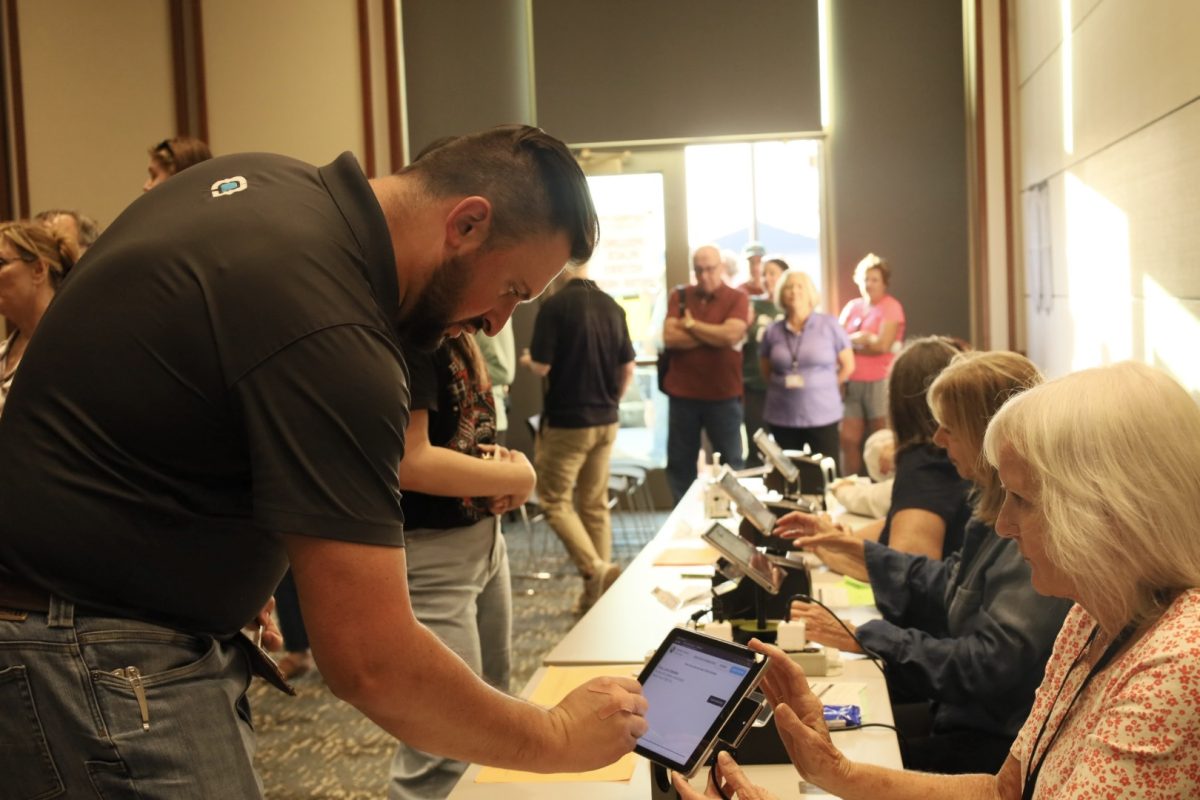




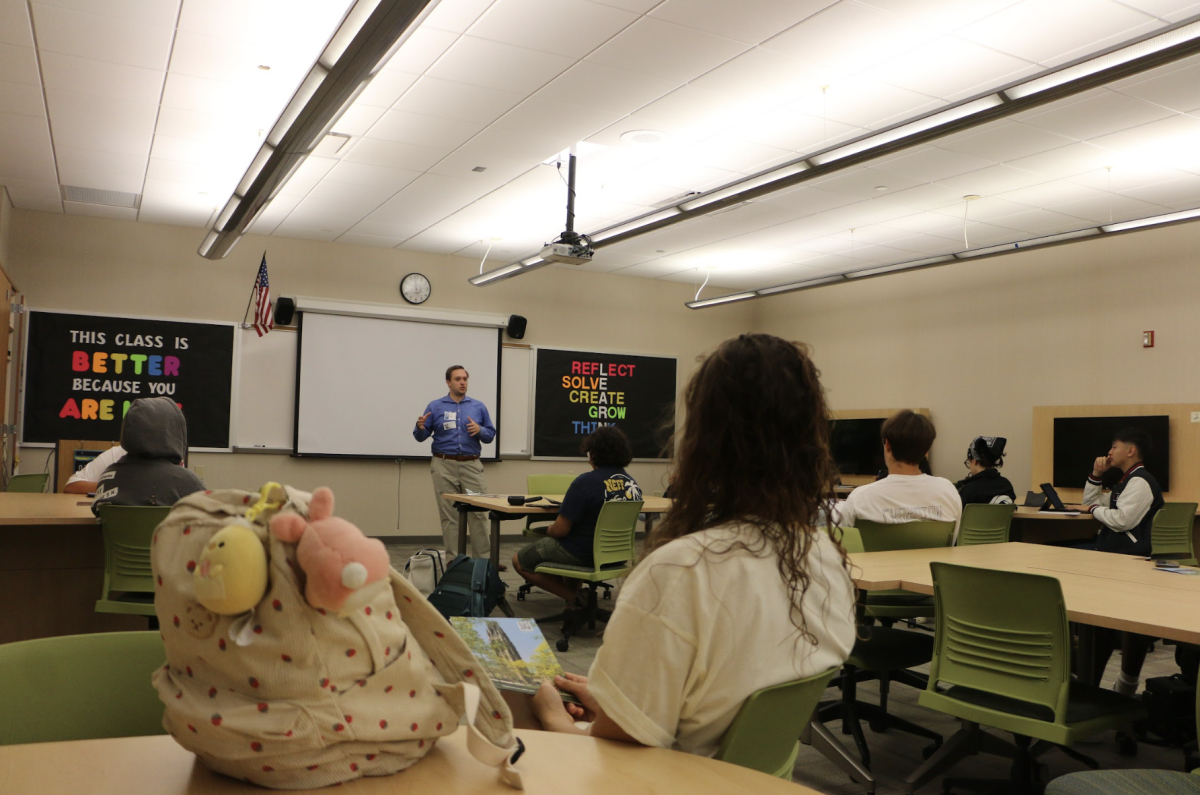




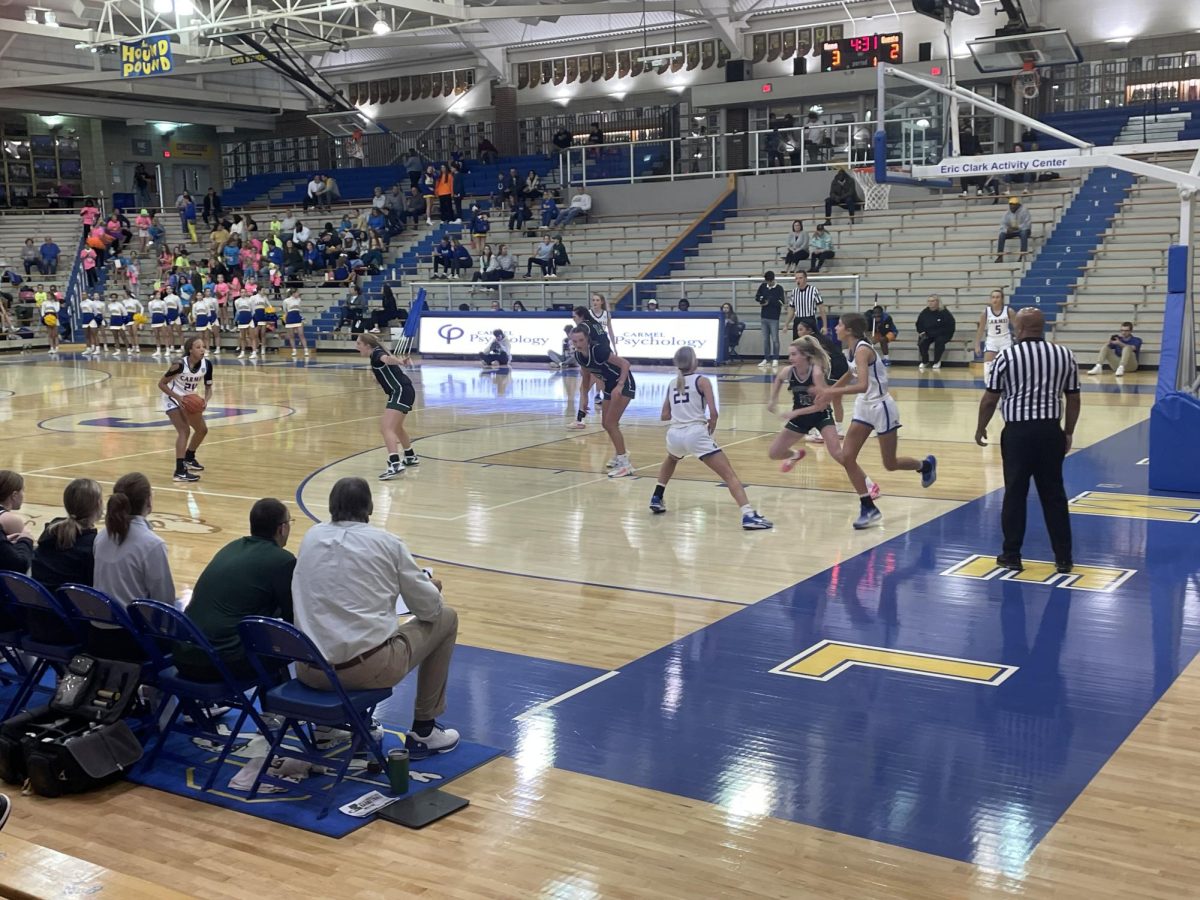



!["Wicked" poster controversy sparks a debate about the importance of accuracy versus artistic freedom [opinion]](https://hilite.org/wp-content/uploads/2024/11/riva-perspective-cover-1200x471.jpg)

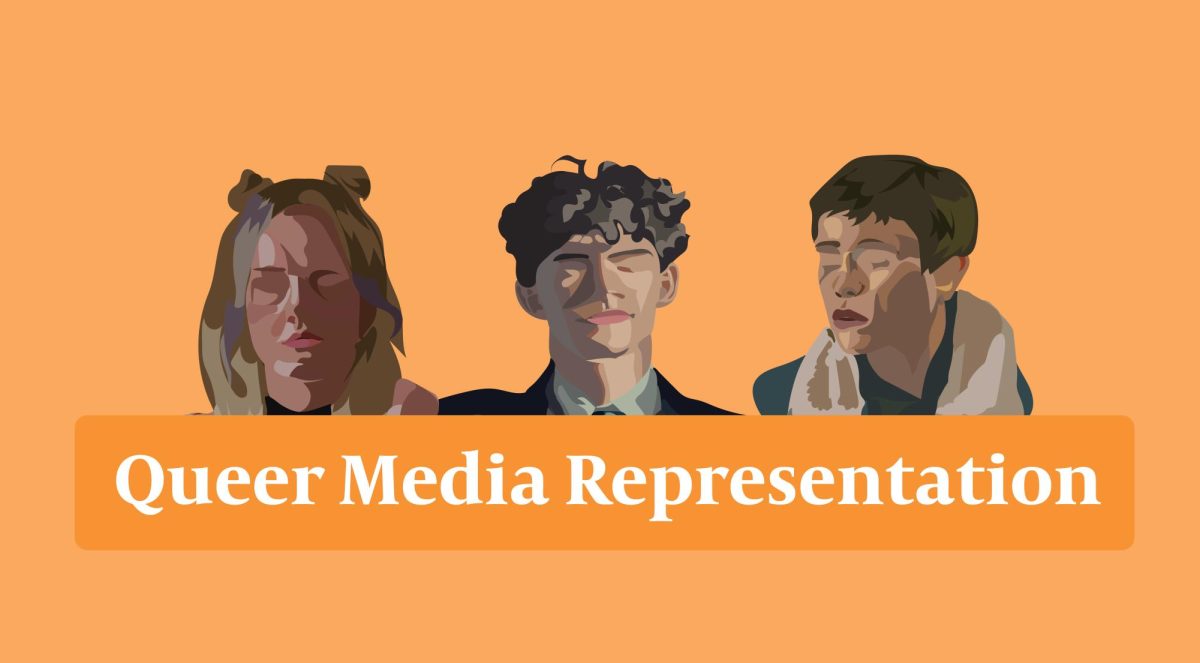
![Chilling or Childish? The downfall of modern horror movies [opinion]](https://hilite.org/wp-content/uploads/2024/10/adjusted-horror-cover-1200x471.jpg)
![“Uglies” is a call for change in the YA dystopian genre [opinion]](https://hilite.org/wp-content/uploads/2024/10/Perspectives-Cover-1200x471.jpg)




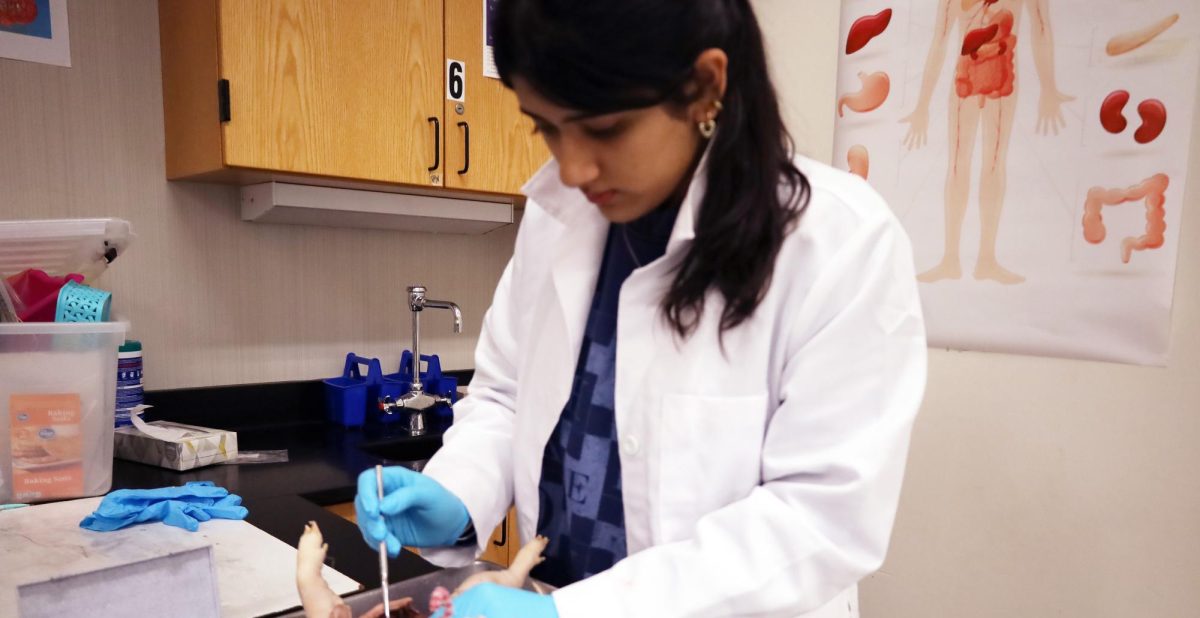

































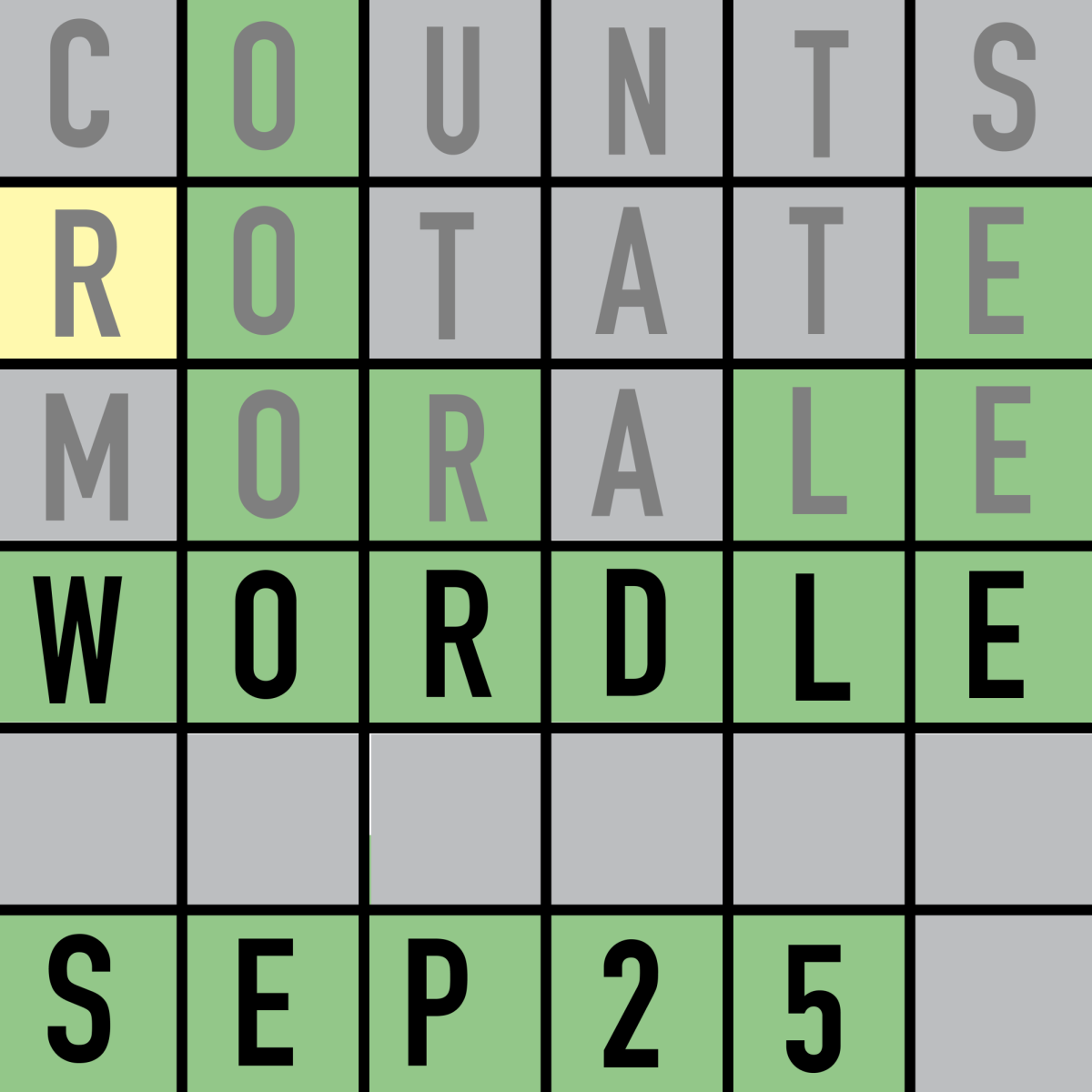





![Review: Indy Scream Park is a perfect level of spook to kickstart the Halloween season [MUSE]](https://hilite.org/wp-content/uploads/2024/11/IMG_1383.jpg)
![Review: “Saturday Night” is a chaotic and thrilling look at the origins of “Saturday Night Live” [MUSE]](https://hilite.org/wp-content/uploads/2024/10/snl-1200x800.jpg)
![Review: “Megalopolis” is a bold, bewildering mess [MUSE]](https://hilite.org/wp-content/uploads/2024/10/MV5BYTk3MjUzMGItYmU1NC00M2YyLThmNDMtNDI4NjkxNjgzMjQzXkEyXkFqcGdeQXRyYW5zY29kZS13b3JrZmxvdw@@._V1_-1200x675.jpg)
![Review in Print: Maripaz Villar brings a delightfully unique style to the world of WEBTOON [MUSE]](https://hilite.org/wp-content/uploads/2023/12/maripazcover-1200x960.jpg)
![Review: “The Sword of Kaigen” is a masterpiece [MUSE]](https://hilite.org/wp-content/uploads/2023/11/Screenshot-2023-11-26-201051.png)
![Review: Gateron Oil Kings, great linear switches, okay price [MUSE]](https://hilite.org/wp-content/uploads/2023/11/Screenshot-2023-11-26-200553.png)
![Review: “A Haunting in Venice” is a significant improvement from other Agatha Christie adaptations [MUSE]](https://hilite.org/wp-content/uploads/2023/11/e7ee2938a6d422669771bce6d8088521.jpg)
![Review: A Thanksgiving story from elementary school, still just as interesting [MUSE]](https://hilite.org/wp-content/uploads/2023/11/Screenshot-2023-11-26-195514-987x1200.png)
![Review: "When I Fly Towards You", cute, uplifting youth drama [MUSE]](https://hilite.org/wp-content/uploads/2023/09/When-I-Fly-Towards-You-Chinese-drama.png)
![Postcards from Muse: Hawaii Travel Diary [MUSE]](https://hilite.org/wp-content/uploads/2023/09/My-project-1-1200x1200.jpg)
![Review: "Ladybug & Cat Noir: The Movie," departure from original show [MUSE]](https://hilite.org/wp-content/uploads/2023/09/Ladybug__Cat_Noir_-_The_Movie_poster.jpg)
![Review in Print: "Hidden Love" is the cute, uplifting drama everyone needs [MUSE]](https://hilite.org/wp-content/uploads/2023/09/hiddenlovecover-e1693597208225-1030x1200.png)
![Review in Print: "Heartstopper" is the heartwarming queer romance we all need [MUSE]](https://hilite.org/wp-content/uploads/2023/08/museheartstoppercover-1200x654.png)




